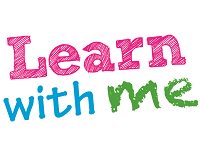
The first few years are the most important in your child's learning and development. As a parent or carer you have the biggest influence during this time and there are a number of ways in which you can help with their early development.
Learn with me - child development tips for parents
Get your child off to a great start with our fun activities:
Talk with me
- How parents can help with communication
- Talk with me leaflets
- Talking Time activity cards
- Why not try this at home - activity ideas for toddlers
Read with me
Write with me
Count with me
Move with me
Move with me - physical development leaflets
Personal, social and emotional development
Being, Belonging, Becoming leaflets
Supporting speech and language
Visit our Helping your 0 to 5 year olds speech and language web page.
Places to visit
You can also find fun learning activities and things to do in your community by visiting your local Toddler groups.
Helping your child prepare for school
Our Get ready for school booklet gives practical advice and answers many of the questions you may have about preparing your child for primary or infant school. It contains information on:
- Finding and applying for a school place
- Things to think about in the weeks before school
- Childcare
- Life at school
- Time for you
You can find further information on when and how to apply for a school place on the school admissions web page.
Early Years Foundation Stage (EYFS)
The Early Years Foundation Stage Statutory Framework sets out both the safeguarding and welfare requirements and the learning and development requirements that Ofsted registered providers must meet.
The learning and development requirements are broken into three prime areas of learning and four specific areas of learning. They also outline the statutory requirements for assessment within the EYFS.
Prime:
- Communication and Language
- Personal, Social and Emotional Development
- Physical Development
Specific:
- Literacy
- Mathematics
- Understanding the world
- Expressive arts and design
There are number of non-statutory documents that can support both practitioner and parents/carers understanding of child development. These include Development Matters and Birth to Five Matters.
Additional Support
Sometimes, to learn and make progress, some children will need additional support. Usually, some short-term additional support will enable the child to make progress. However, some children will have longer term difficulties which may require additional support or intervention for a long period.
Support should be provided based on the individual child's needs and so it is important to identify what their needs are to get the right support at the right time.
You might find it helpful to look at:
- The parents' guidance to the Early Years Foundation Stage
- The Early Years Foundation Stage
- Development Matters
National Health Service (NHS) Choices
Further information and ideas to help your child's development from the NHS.
- NHS Choices: Baby and toddler play ideas
- NHS Choices: Teaching your child everyday skills
- NHS Choices: How do I play with my child to help their development? (9 to 12 months)
- NHS: How to potty train
In this section
- How parents can help with communication
- How parents can help with reading
- Bookstart
- Libraries for under 5s
- Toddler groups
- Parents' guide to the Early Years Foundation Stage
- What early learning activities will my child do with their childcare provider
- Health and development reviews at age 2 – information for parents

